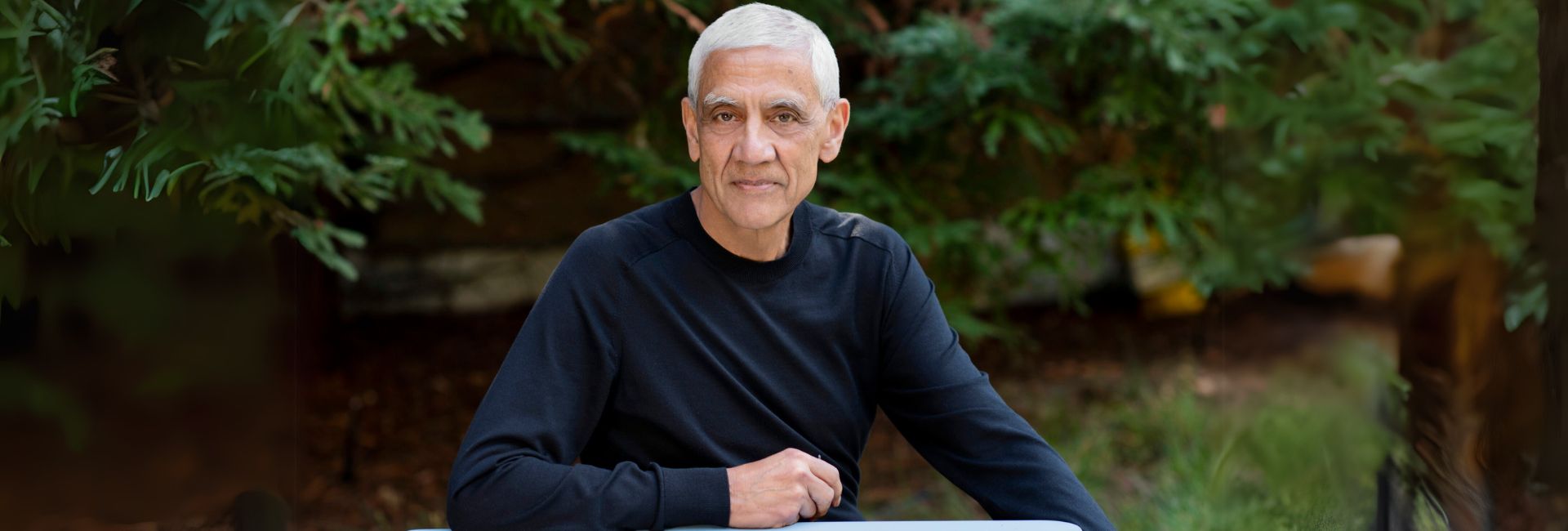(May 21, 2025) In the early 1970s, a teenage Vinod Khosla sat in his modest New Delhi home, reading an article about a young tech company called Intel. The story of Bob Noyce and Gordon Moore building microprocessors sparked something in him. At just 16, Khosla knew he wanted to start a tech company someday. It was a bold dream for a boy from a middle-class family with no ties to business—his father was an officer in the Indian Army, and a stable military career seemed more likely. But that moment became the start of his extraordinary journey.
Born in Pune in 1955 and raised in New Delhi, Khosla was curious and determined. With no family connections in the tech world, he relied on his passion for learning. He earned a degree in electrical engineering from IIT Delhi, where he built a strong foundation in technology. Still driven by the dream sparked years earlier, he made another big leap—moving to the United States for further education.
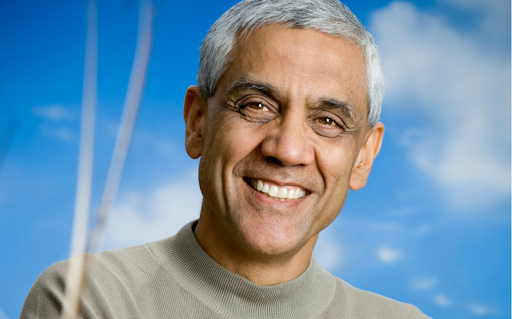
Vinod Khosla
That leap paid off. Today, Vinod Khosla is one of the world’s most respected venture capitalists. He co-founded Sun Microsystems and later started Khosla Ventures, a firm that invests in bold ideas and innovative companies like OpenAI, Impossible Foods, and Square. Known for taking risks on big, world-changing ideas, Khosla continues to shape the future of technology, energy, healthcare, and more.
Crossing the Ocean: From IIT to Silicon Valley
After earning his degree from IIT Delhi, Vinod Khosla moved to the United States in the 1970s to pursue higher education. He first completed a Master’s in biomedical engineering at Carnegie Mellon University, where he explored advanced research. His journey then led him to Silicon Valley, the hub of innovation and startups.
In 1979, Khosla began his MBA at Stanford University. It was a life-changing experience. Surrounded by entrepreneurs and new ideas, he found the perfect environment to chase his dreams. At Stanford, he learned more than just business skills—he absorbed a mindset of innovation and bold thinking.
Khosla later said he never worked just for money or a title. Instead, he followed what truly interested him. “If you really believe in something, you try your best to make it happen,” he shared during a Stanford talk. Though success isn’t guaranteed, he believed effort makes a big difference. With this belief, Khosla was ready to take on the future.
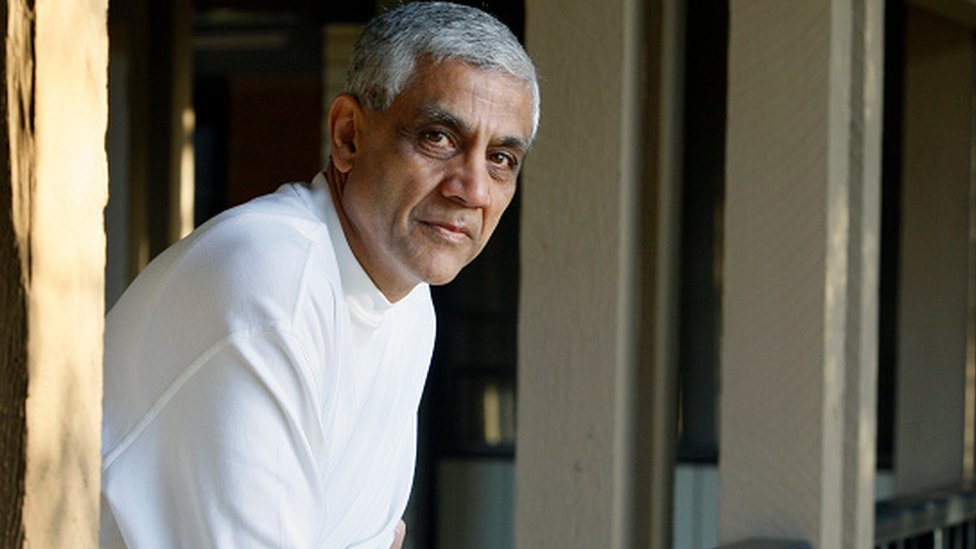
First Trials and Triumphs: The Story of Sun Microsystems
After finishing his MBA at Stanford in 1980, Vinod Khosla jumped straight into starting his own company. His first venture, Daisy Systems, aimed to create a design tool for engineers. Though the idea was strong, the existing technology wasn’t up to the task. Khosla grew frustrated with the limits of computer hardware—and that frustration soon led him to a key moment in his journey.
While working at Daisy, Khosla came across a prototype of the SUN workstation, created by Stanford grad student Andy Bechtolsheim. Impressed by Bechtolsheim’s talent, Khosla saw an opportunity. In 1982, he teamed up with Bechtolsheim, software expert Bill Joy, and business-savvy Scott McNealy to start Sun Microsystems. Khosla brought the team together—a decision that changed all their lives.
Sun Microsystems (named after “Stanford University Network”) quickly made waves in Silicon Valley. The company built powerful computers and helped bring the internet and open-source software into mainstream use. Khosla became Sun’s first CEO and helped guide the company’s vision. He often joked about an earlier failed idea called “Data Dump” that never took off—but Sun’s success made that failure easy to forget.
Sun went public and grew into a major tech player. Years later, it was acquired by Oracle for $7.4 billion, securing its place in tech history. For Khosla, Sun Microsystems was his first major win—proof that he could build something big. But in 1986, still only 31, Khosla stepped away. He had achieved success as a founder and was ready for his next challenge in the fast-changing world of Silicon Valley.
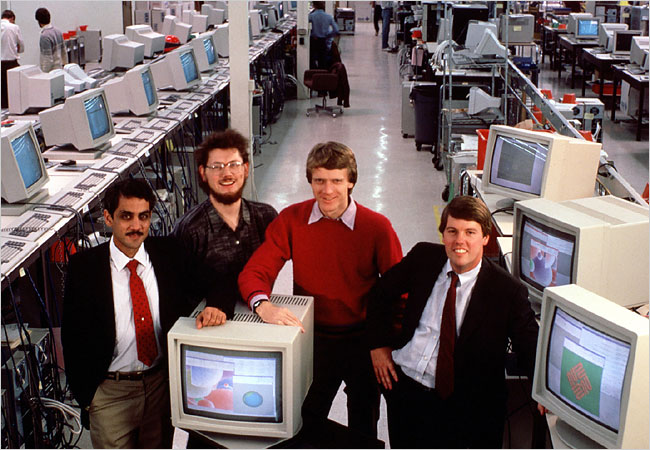
From Founder to Funder: Joining Kleiner Perkins
In 1986, Vinod Khosla made a bold move—he left Sun Microsystems and joined top venture capital firm Kleiner Perkins as a general partner. Shifting from founder to investor, he began helping other entrepreneurs build their startups, using his experience to guide them through challenges.
At Kleiner Perkins, Khosla earned a reputation for spotting bold, game-changing ideas. He invested in companies across industries like semiconductors, networking, and multimedia. But he stood out from traditional investors—he didn’t rely on spreadsheets or financial formulas. “I haven’t used IRR in 20 years,” he once said, preferring to back big visions and gut instincts over numbers.
Khosla called himself a “venture assistant” rather than a venture capitalist, focusing on supporting founders and their daring ideas. He often backed risky projects others avoided, believing that failure is part of the path to success. “My willingness to fail is what gives me the ability to succeed,” he said. His approach encouraged entrepreneurs to trust their instincts, experiment boldly, and ignore doubters—staying true to his belief that real progress comes from those who think differently.
Khosla Ventures: Backing Bold Ideas
After nearly 20 years at Kleiner Perkins, Vinod Khosla wanted more freedom to follow his vision. In 2004, he started Khosla Ventures using his own family’s money. This was his way of focusing fully on big, world-changing ideas.
Khosla Ventures quickly became known for taking bold bets—investing in clean energy, biotech, AI, and more. Khosla wasn’t afraid of failure. He looked for “moonshot” ideas with huge potential, even if the chances of success were low. “Try and fail, but don’t fail to try,” he often says, believing that failure is just part of the journey to real impact.
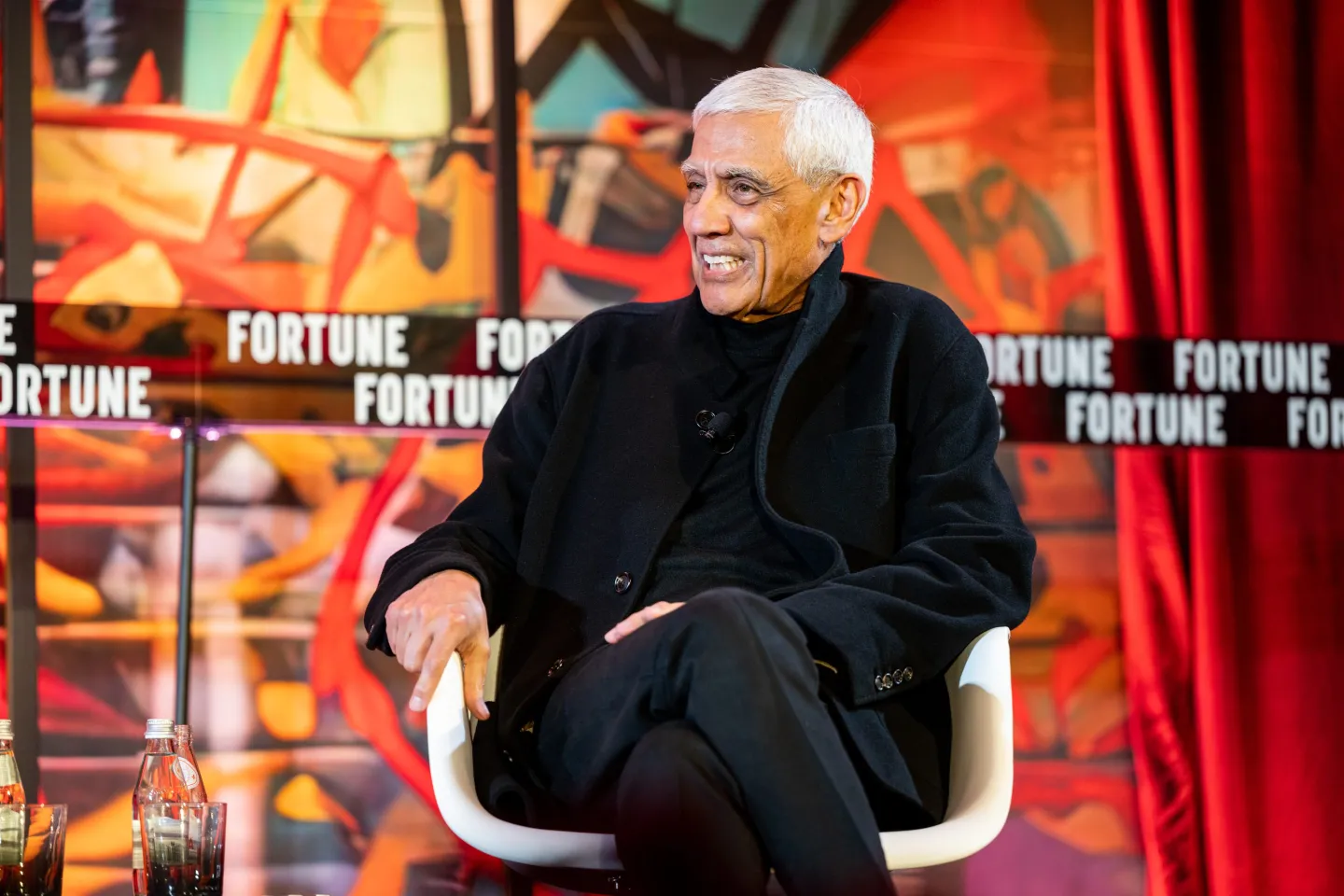
His high-risk, high-reward approach worked. By 2019, Khosla was regularly listed among the top venture capitalists, and his firm managed billions in investments—especially in clean tech. Yet, he stayed true to his mission, calling himself a “venture assistant,” focused on helping founders bring bold ideas to life. At Khosla Ventures, thinking big and taking risks wasn’t just allowed—it was the core belief.
Backing Future Giants: Square, DoorDash, Impossible Foods, OpenAI
Vinod Khosla has a talent for spotting big ideas early. Through Khosla Ventures, he backed startups like Square and DoorDash long before they became household names. He also supported bold ventures like Impossible Foods, which is changing the way we think about meat, and OpenAI, the team behind ChatGPT, at a time when their success was far from certain.
Other investments—like Instacart and Affirm—show his ability to stay ahead of the curve. Khosla doesn’t just follow trends; he helps create them by supporting founders with daring ideas.
For the Indian diaspora, his journey is especially inspiring. He’s a Global Indian who has helped shape the future of technology and innovation. Each company he supports adds to his impact, making him one of Silicon Valley’s most influential figures.
A Global Indian Hero: Giving Back and Shaping the Future
Vinod Khosla’s influence goes far beyond Silicon Valley—he’s also helped shape India’s startup ecosystem. One of the first global voices to champion Indian entrepreneurial talent, Khosla has inspired many founders both in India and abroad. His support and belief in India’s tech potential helped shift global views—from seeing India as just a service hub to recognizing it as a center for innovation.
He often speaks about the need for India to focus on building intellectual capital in areas like technology, clean energy, and biotech. Khosla has encouraged Indian policymakers to reduce red tape and support homegrown solutions that leapfrog Western models, especially in healthcare and infrastructure.
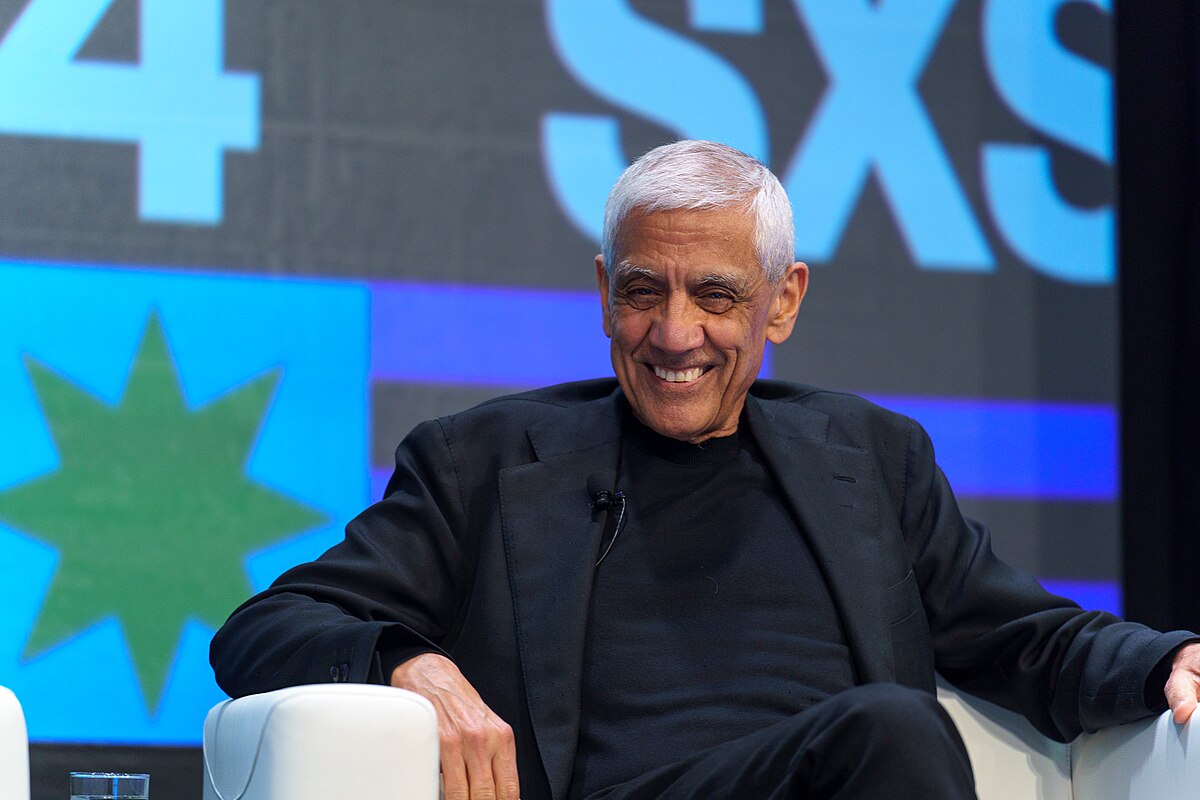
His impact also includes philanthropy. During the COVID-19 crisis, Khosla pledged $10 million to supply oxygen to Indian hospitals. He and his wife, Neeru, signed the Giving Pledge in 2011 to donate at least half their wealth to charity. Neeru co-founded the CK-12 Foundation to provide free digital textbooks, and Khosla has supported causes like the Wikimedia Foundation and global poverty solutions through UC Berkeley’s Blum Center.
Khosla also helped launch TiE (The Indus Entrepreneurs) in 1992—a global network supporting Indian-origin entrepreneurs. TiE has since helped thousands of startups, bridging the gap between Indian dreamers and global opportunity.
Though based in California, Khosla stays closely connected to India’s future. He’s optimistic about the country’s growth through entrepreneurship and encourages young Indians to keep learning and striving, no matter the setbacks. “Not getting into IIT is just one small failure,” he says. “Keep pursuing your dream.”
The Journey Comes Full Circle
Vinod Khosla’s life is a powerful story of ambition, grit, and impact. From a curious teenager in Delhi inspired by a magazine article to a billionaire in Silicon Valley backing the next wave of innovators, his journey reflects the classic Hero’s Journey—answering a call, facing challenges, achieving success, and then helping others rise.
Khosla’s path took him from IIT Delhi to Stanford, from startup struggles to building Sun Microsystems, and finally to becoming a mentor and investor through Khosla Ventures. What guided him throughout was his bold vision and refusal to accept limits. He often quotes, “The reasonable man adapts to the world; the unreasonable one tries to change it. All progress depends on the unreasonable man.”
- Follow Vinod Khosla on LinkedIn
ALSO READ | Aravind Srinivas and Perplexity AI: Helping the world sleep wiser than it woke up
